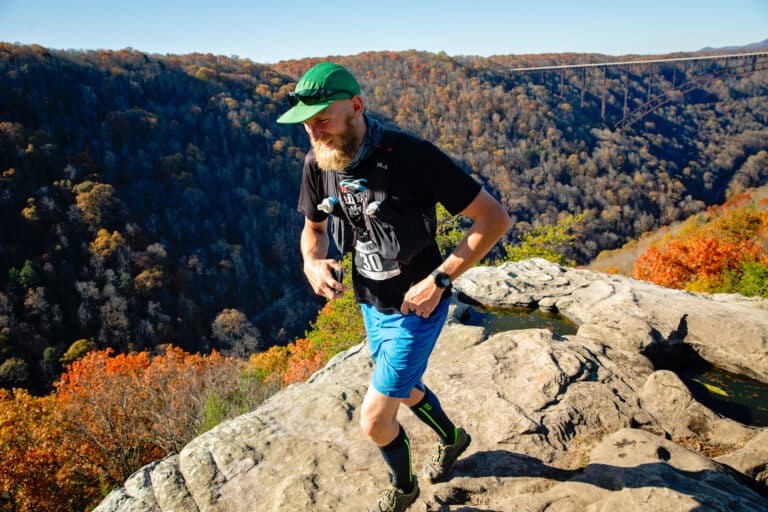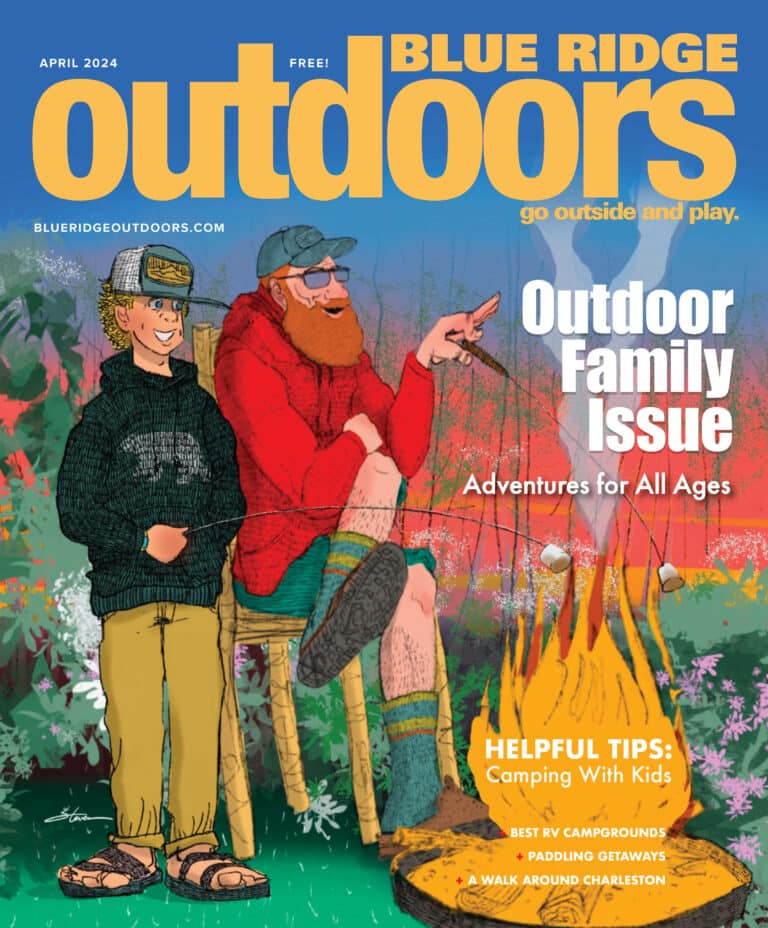Dave Matthews Band, Rock’s Environmental Stewards
Back in the mid-90s, when the Dave Matthews Band was still a young band from Charlottesville on the rise, they would bring Greenpeace on their lengthy road swings. Matthews would make an announcement at the end of the show telling fans if they donated a dollar to help the organization keep the trees green and the sky blue they would “automatically get to go to heaven.” At the time most of us probably didn’t see the urgency or understand the bribe, basking in the comfort of Clinton Prosperity.
Now the touring kings are one of the most successful rock bands in the world and certainly the biggest to ever come out of the Blue Ridge-a mark solidified with record sales over 30 million and multiple-night sellouts of Giants Stadium. But with fame and fortune they’ve only increased their efforts for planetary health.
In 1999 the band created the Bama Works Fund, which has provided over $4 million to charitable organizations in Central Virginia and beyond, including public school systems, children’s hospitals, and community parks, as well as environmental groups like the Southern Environmental Law Center, Piedmont Environmental Council, Defenders of Wildlife, Clean Virginia Waterways, and the Environmental Education Center.
Matthews doesn't just talk about the envrionment; he lives it. He scooped up a bunch of land around Charlottesville and turned it into an organic farm and vineyard.
The band is also still bringing the message out on the road. Last summer they teamed up with Ben and Jerry’s Ice Cream and SaveOurEnvironment.org and hired an environmental roadie to tout a Lick Global Warming campaign and educate fans on how to personally reduce CO2 emissions.
Ryan Williamson, Eco-Innovator
Ryan Williamson lives the life we all dream about. He’s an affable granola kid that’s actually turned his ideals and simple upbringing into an unconventional modern lifestyle. He lives close to the land, deeps in the woods near Shenandoah National Park. He puts aside months of the year to spend on trails. And he makes a living through his own eco-friendly business-Mouse Works, a unique brand of hand-made recycled fleece hats and clothing that he makes from home.
Williamson grew up on a remote mountain homestead in West Virginia as the son of a wood-turner. Being self-sufficient was necessary during a youth that included rigorous travel to craft shows. He learned to love the artisan tradition and at a young age he sewed his first hat. Proudly he wore it to school, and classmates were immediately impressed, asking him if he had any for sale. Soon he was slinging them out of a garbage bag in the high school hallway.
After college in Maine and two complete hikes of the Appalachian Trail, Williamson decided to make his craft a full-time business. The company name comes from his trail name Timothy Mouse.
“At first it was just a way for me to buy backpacking gear,” says Williamson. “Running a small business isn’t easy, but to me this came naturally.”
He hand makes the fleece gear that he sells out of “double recycled” fleece, meaning he uses the scraps that are only going to be discarded from factories. Although he may not always get the colors of his choice, buying recycled fleece drastically reduces his production costs and preserves even more energy than virgin fleece made from recycled soda bottles.
“From square one I’ve tried to keep my impact as low as possible,” he says. “If I can take what can’t be used, I think it’s far more environmentally friendly. I don’t buy virgin fleece even if I have to turn down orders for certain colors.”
The products have caught on and are being sold in outfitters all over the Blue Ridge region and as far away as Montana. But to sustain his income as a one-man operation, Williamson also has to travel to craft shows every weekend from September through December.
“It takes a lot of long term planning and discipline, since most of my cash for the year comes in over four months,” he says. “But I wasn’t meant to work a normal job. Being able to walk out for a hike whenever I want makes it all worth it.”
Jason Rutledge, Restorative Forester
We need more good traditional mountain folk like Jason Rutledge. He grew up on an Appalachian farm, he’s a fourth generation horseman, and he’s a proud hillbilly with planetary vision. Rutledge is the founder of Healing Harvest Forest Foundation, based in Southwest Virginia, which focuses on sustainable forestry initiatives and restoration practices. While many environmentalists have a negative knee-jerk reaction to loggers, Rutledge has restored ecological integrity to the profession. He coined the term “worst first,” which means extracting trees in decline first using skilled horse logging techniques that have a very low impact on Appalachian forests. His nonprofit organization teaches these pioneering methods all over the country. The work is often criticized as dinosaur, but Rutledge sees it as the only reasonable alternative to addressing our forest needs while combating the reckless clear-cutting that often plagues our region.
“Our approach is often dismissed as backwards,” says Rutledge. “But as we learn more about how important the ecological services of the forest are to human survival, particularly given the reality of global warming, the more sensitive we must be. We need lumber and paper, so we want to address those needs in a way that enhances the forest.”
In May he was given one of three prestigious Rock the Earth Planet Defender Awards, a simple Virginian standing alongside high-profile company including Jack Johnson and Salt Lake City Mayor Rocky Anderson.
“It comes down to human dignity,” he says. “I feel good about doing this work, because I know I leave the world around me better than it was.”
Janisse Ray, Author, Activist
She’s a writer, a naturalist, and activist. But Janisse’s Ray greatest talent is weaving all three together to give environmentalism a personal and emotional voice, using her poignant pen to relate a love of nature through biographical accounts of tradition and culture. Ray is best known for her widely hailed first book Ecology of a Cracker Childhood, a New York Times bestseller that recounts her upbringing on a junkyard in rural Southern Georgia while also explaining the area’s ecology and particularly her passion for the vanishing longleaf pine forest. While inside an angry activist’s fire burns, her delivery comes through a peaceful down-home demeanor and a thick Southern accent, possibly her best weapons.
“I try to speak in a language of acceptance that all people understand,” Ray says. “It’s hard to keep people’s attention when you’re talking about issues, but if you hang it on to a person, you’ll keep a reader’s attention to the last sentence. Statistics on pollution and other problems tell a great story but I believe in the power of people’s connection to each other.
“In Ecology of a Cracker Childhood I didn’t mind writing a sentence that said, ‘God doesn’t like a clear cut,’ knowing that people would absolutely understand what that means. I try to meet people where they are.”
In 2005 she published Pinhook: Finding Wholeness in a Fragmented Land, the story of the restoration of Pinhook Swamp, which joins the Okefenokee Swamp in Georgia with the Osceola National Forest in Florida. Through her efforts, the 750,000-acre area is now a protected wildlife corridor.
In addition to writing for dozens of high-profile pubs from The Washington Post to Oprah Magazine, Ray was the John and Renee Grisham writer-in-residence at the University of Mississippi. But she also gets her hands dirty and joins the environmental movement at a grassroots level, fighting against development for preservation of the Southern landscape. She is a founding board member of the Altamaha Riverkeeper, and she helped to form the Georgia Nature-Based Tourism Association and has worked to preserve the 3,400-acre Moody Forest in Appling County.
“We’re being duped by an industrial economic system, Ray says. “It sets no limits on what it is willing to do to turn resources into profit, and the little person be damned. I’ve realized that my first challenge is to teach people self-esteem and let them know they’re worth enough to stand up and say they don’t want their road paved. We’ve been a very land-based people, but we have not embraced the land ethic. In the rural South it’s often about courage.”
Joe Lovett and Julia Bonds, West Virginians at War
After law school at the University of Pennsylvania Joe Lovett could have pursued a fat bankroll in the corporate world, but his conscience took him in another direction. He founded the Appalachian Center for the Economy and the Environment, a tiny nonprofit law firm based in Lewisburg, W.Va., that takes on the industry giants-mainly King Coal-that are perpetuating injustice on rural Appalachia. Lovett picks the battles most idealists probably wouldn’t be able to face, squaring off in the courtroom with mighty corporations equipped with endless dollars for legal resources.
More than 1.5 million acres will be lost by mountaintop removal by the end of the decade. Toxic slurry from the mining is stored near elementary schools or dumped into waterways.
The devastating effects of mountaintop removal hit close to home for Julia Bonds, whose family had peacefully lived in the Coal River Valley of West Virginia for seven generations before mountaintop removal sites forced her and other locals to relocate. A coal miner’s daughter, Bonds now serves as a prominent public speaker for Coal River Mountain Watch, an organization that has worked with Lovett in the fight against mountaintop mining. She’s a constant watchdog that consistently bugs the state government to inspect mine sites and has had operating suspended. For her rigorous efforts Bonds was awarded a prestigious Goldman Environmental Prize in 2003.
In an uphill struggle Lovett and Bond are determined to remain the thorns in the side of King Coal and the federal government, which recently relaxed provisions in the Clean Water Act to allow mine-waste dumping in streams.







